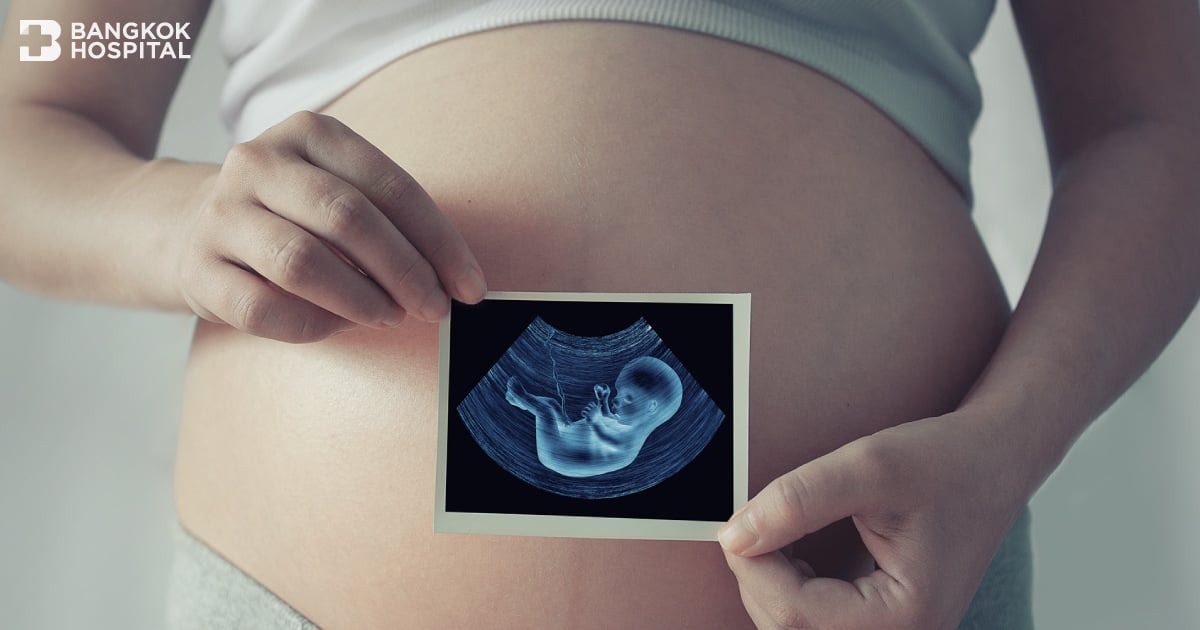Belief: During pregnancy, if you want your child to have fair skin, avoid eating dark-colored foods like grass jelly, black sesame, or chocolate.
Truth: The baby’s skin color, whether light or dark, depends on genetic expression, specifically, genes that control the expression of melanin or pigment, which result in varying skin colors from birth. However, environmental factors can influence changes in skin color over time, such as ultraviolet radiation darkening the skin or skin lotions with whitening agents slightly lightening the skin. Consuming grass jelly or other dark-colored foods does not affect the skin color of the fetus in the womb.
Belief: Drinking coconut water during pregnancy helps the baby to be born without vernix.
Truth: Vernix caseosa normally develops in the fetus around 5 months into the pregnancy, which serves to moisturize the baby’s skin, prevent heat loss at birth, protect against bacteria, and act as lubricant making childbirth easier. Normally, by full-term pregnancy, the amount of vernix decreases; if a baby is born prematurely, there tends to be more vernix. Drinking coconut water, which contains both saturated and unsaturated fats, might make the vernix appear whiter but does not help in being born without it.
Belief: Drinking coconut water during pregnancy can lead to miscarriage.
Truth: Coconut water contains estrogen, but in very small amounts. Normally, during pregnancy, the levels of estrogen and progesterone are already high, so the small amounts found in coconut water do not affect uterine contractions that could cause a miscarriage.
Belief: Sex during pregnancy is prohibited.
Truth: Sex during pregnancy is generally safe and does not cause abnormalities in the fetus. There may be times when it’s advisable to reduce sexual activity, such as the early stages of pregnancy due to symptoms like morning sickness or fatigue, and close to delivery, which can be uncomfortable and tiring. Nonetheless, certain positions may be more comfortable and should be considered. However, pregnant women with a history of miscarriage, premature birth should avoid sex during the first and last three months of pregnancy, and avoid sexual activity if experiencing leaking fluid or placenta previa.
Belief: The prenatal vitamins prescribed during pregnancy cause weight gain.
Truth: Prenatal vitamins focus on iron and vitamins, which are directly beneficial for pregnant women and their fetuses, such as improving red blood cell production, and are not related to weight gain. Weight gain during pregnancy is more influenced by hormonal changes causing cells to retain fluid, and many pregnant women also experience increased appetite, leading to greater food intake.
Belief: During pregnancy, you can gain as much weight as you want and eat freely.
Truth: Normally, weight gain during pregnancy should follow these guidelines:
First trimester should gain about 1 kilogram
Second trimester 2 should gain about 4 – 5 kilograms
Third trimester 3 should gain about 5 – 6 kilograms, or a total of 10 – 12 kilograms throughout the pregnancy to prevent risks like gestational diabetes, high blood pressure, which can lead to preeclampsia. Therefore, one should consume nutritious food, avoiding sweets and such.
Belief: Exercising during pregnancy is prohibited.
Truth: Exercising during pregnancy promotes good posture, reduces back pain, fatigue, and stress, and there is evidence that it prevents gestational diabetes. If you were already exercising before pregnancy, moderate-intensity exercise such as brisk walking and swimming are generally safe. Avoid exercises with a high risk of impacts or accidents. If you have not exercised before, consult a doctor or engage in pregnancy-specific exercise routines, and start after the first 14 weeks of pregnancy.





